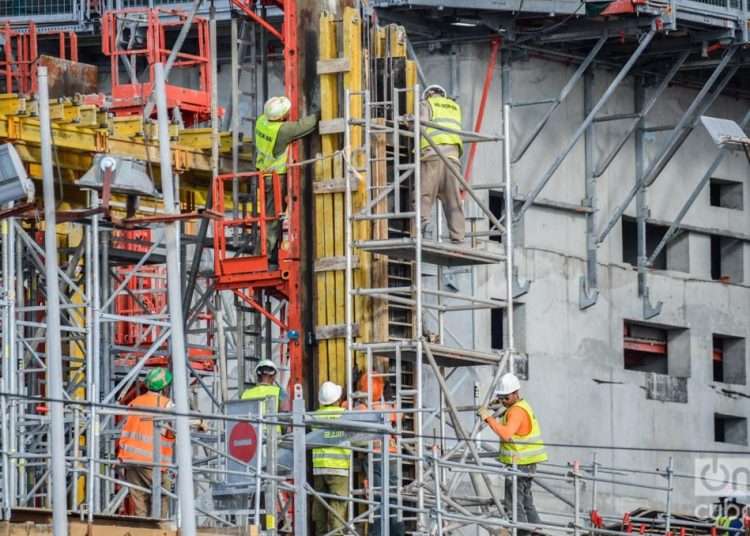Cuban President Miguel Diaz-Canel ratified that starting 2020 the economic plans “will not come from above” and that it will be the workers who will design the goals of the state enterprises, a “bold measure” by the government to try to revive the island’s damaged economy.
The president referred to the new directive when giving the closing speech of a congress of economists, who are necessary “to successfully implement the decision,” Granma daily reported this Saturday in a front-page story.
With the decentralization of its economy, Cuba ends decades of verticality in its economic plans, a method that although effective in the first years of the Revolution, today has become a burden for the Caribbean nation, determined not to fall back on an intense crisis like that of the “special period” of the 1990s.
For many specialists the main challenge of this transformation lies in changing the culture of “verticality” that doesn’t question the orders from a higher structure.
“A change of mentality is necessary for this much-demanded measure to be effective. To take a leap to the new moment and know that the Plan will not come from above. It is an audacious and revolutionary measure that demands objectivity, realism and awareness,” Díaz-Canel insisted.
Marchas y contramarchas: el pa’trás y pa’lante de la política económica
According to the Cuban president, corruption and illegalities, the low level of savings, indebtedness and insufficient income from exports are among the main burdens of the economy on the island, which is trying to ward off the specter of recession, which reappeared in 2016 (-0.9%) for the first time in more than 20 years.
Cuba managed to recover with 1.6% in 2017 and 1.2 in 2018―according to official data―and expects a “realistic” 1.5% this year, a goal that is endangered by the strengthening of the U.S. economic embargo and the new ban on the calling of cruise ships at Cuban ports.
The endemic crisis of its ally Venezuela, which has drastically reduced its shipments of subsidized crude, the termination of thousands of contracts for medical services in Brazil and the damages caused by natural phenomena could also have a negative influence on this result.
The Cuban leader called on economists and leaders to adopt “a more proactive, intelligent and concrete attitude” to “promote safe and specific solutions” that strengthen the “structures and leadership and economic management teams.”
He also called for changing the “import mentality that undermines initiative and creativity” and “developing foreign investment and the creation of joint ventures, as well as organizing the private sector, without stopping or slowing down its performance.”
“The end of the blockade doesn’t depend on us, but working with intelligence, effort and collective creativity does. Along with the defense of the country, the economy is the Revolution’s fundamental battle, therefore we must use our knowledge to make it prosperous and sustainable,” he said.
Miguel Díaz-Canel, who took office in April 2018 from the hands of former President Raúl Castro, inherited the reforms initiated by his predecessor, which opened the country to foreign investment and boosted self-employment to eliminate the inflated state payrolls.
The recently proclaimed Cuban Constitution included for the first time foreign investment and private property, and the government has recognized on several occasions that the injection of foreign capital and the private sector are vital to revive the economy, although in practice it still maintains obstacles that slow down this contribution.










